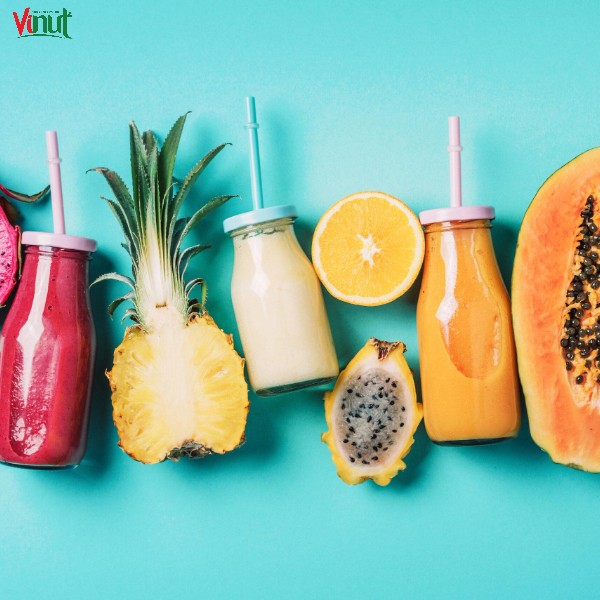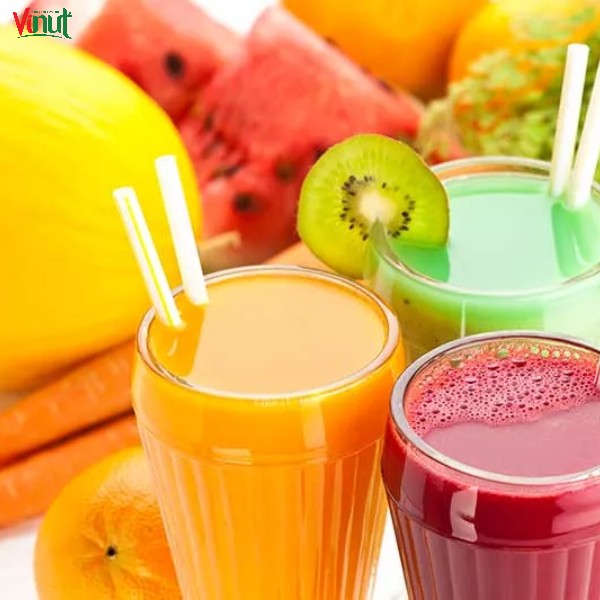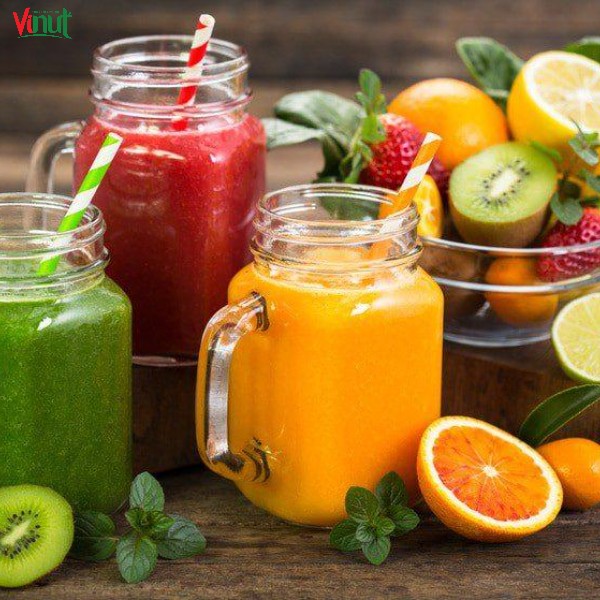
News
Top 10 Tropical Juice Market Trends

The tropical juice market is experiencing significant growth, driven by consumer demand for healthier and more exotic beverage options. This article Cojo Cojo explores the top 10 trends shaping the future of the tropical juice industry. From sustainability to innovative flavors, these trends are transforming how we enjoy our favorite tropical juices.

1. Sustainability and Eco-Friendly Packaging
Eco-Conscious Consumer Demands
As consumers become more environmentally aware, there is a growing demand for sustainable and eco-friendly packaging. Tropical juice brands are responding by adopting recyclable, biodegradable, and reusable packaging options.
Examples of Sustainable Packaging
- Biodegradable Bottles: Made from plant-based materials that decompose naturally.
- Recyclable Cartons: Easy to recycle and reduce waste.
- Reusable Glass Containers: Promote a circular economy by encouraging reuse.
2. Organic and Natural Ingredients
The Rise of Organic Juices
Consumers are increasingly seeking juices made from organic juice and natural ingredients, free from synthetic pesticides and additives. This trend is driven by a desire for healthier and more transparent food options.
Benefits of Organic Juices
- No Harmful Chemicals: Free from synthetic pesticides and fertilizers.
- Nutrient-Rich: Higher levels of vitamins and minerals.
- Better Taste: Fresher and more natural flavors.

3. Exotic and Unique Flavors
Exploring New Flavor Profiles
The tropical juice market is expanding its flavor offerings to include exotic and unique fruits. Consumers are eager to try new and exciting flavors that go beyond the traditional options.
Popular Exotic Flavors
- Dragon Fruit: Vibrant color and mild sweetness.
- Soursop: Creamy texture with a citrusy flavor.
- Mangosteen: Sweet and tangy taste with a hint of tartness.
4. Functional Beverages
Health Benefits in Every Sip
Functional beverages are becoming increasingly popular as consumers look for drinks that offer additional health benefits. Tropical juices are being fortified with ingredients like probiotics, antioxidants, and vitamins.
Common Functional Ingredients
- Probiotics: Support gut health.
- Antioxidants: Boost immune function.
- Vitamins: Enhance overall wellness.

5. Cold-Pressed Juices
Preserving Nutrients and Flavor
Cold-pressed juices are made using a method that extracts juice without heat, preserving more nutrients and enzymes. This process results in fresher and more flavorful juices.
Advantages of Cold-Pressed Juices
- Nutrient-Rich: Retains more vitamins and minerals.
- Fresher Taste: Natural flavors are more pronounced.
- Longer Shelf Life: Maintains quality for a longer period.
6. Reduced Sugar and Low-Calorie Options
Meeting Health-Conscious Demands
With growing concerns about sugar consumption and obesity, there is a trend towards reduced sugar and low-calorie tropical juices. Brands are developing healthier options with natural sweeteners and fewer calories.
Healthier Alternatives
- Stevia-Sweetened Juices: Natural and zero-calorie sweetener.
- Naturally Sweetened Blends: Using fruits like mango and pineapple for sweetness.
- Juice-Water Mixes: Diluting juice with water to lower calorie content.
7. Plant-Based and Vegan Options
Catering to Plant-Based Diets
The rise of plant-based diets is influencing the tropical juice market. Consumers are seeking vegan-friendly options that align with their dietary preferences.
Popular Plant-Based Juices
- Coconut Water: Hydrating and rich in electrolytes.
- Almond Milk Blends: Nutritious and dairy-free.
- Plant-Based Protein Juices: Boosted with plant-derived proteins.

8. Transparency and Clean Labels
Demand for Honest Labeling
Consumers are increasingly demanding transparency about what goes into their juices. Brands are responding with clear and clean labeling practices, providing detailed information about ingredients and nutritional content.
What to Look For
- Ingredient Lists: Clear and easy to understand.
- Nutritional Information: Detailed breakdown of vitamins and minerals.
- Sourcing Information: Where and how the fruits are grown.
9. Local and Fair Trade Sourcing
Supporting Ethical Practices
There is a growing trend towards supporting local farmers and fair trade practices. Brands are sourcing tropical fruits from local and fair trade farms, ensuring ethical and sustainable practices.
Benefits of Local and Fair Trade Sourcing
- Fresher Ingredients: Locally sourced fruits are fresher.
- Support for Farmers: Ethical practices help local communities.
- Sustainable Practices: Fair trade promotes environmental sustainability.
10. Personalized and Customizable Juices
Tailoring to Individual Tastes
Personalization is becoming a key trend in the tropical juice market. Consumers can customize their juices according to their preferences, whether it’s adjusting sweetness, adding supplements, or choosing specific fruit combinations.
Customization Options
- Sweetness Levels: Adjusting the amount of natural sweeteners.
- Add-Ins: Including chia seeds, spirulina, or other supplements.
- Custom Blends: Mixing different fruits to create unique flavors.
Conclusion
The tropical juice market is evolving rapidly, driven by consumer demands for healthier, more sustainable, and innovative products. These trends are shaping the future of tropical juices, offering exciting opportunities for both consumers and brands. By staying informed about these trends, you can enjoy the best that the tropical juice market has to offer.
FAQs
1. What makes cold-pressed juices better than traditional juices?
Cold-pressed juices retain more nutrients and enzymes, providing a fresher taste and higher nutritional value compared to traditional juices.
2. Are organic tropical juices worth the extra cost?
Yes, organic tropical juices are worth the extra cost as they are free from synthetic pesticides and chemicals, offering a healthier and often tastier option.
3. How can I identify eco-friendly juice packaging?
Look for labels indicating recyclable, biodegradable, or reusable packaging. Brands often highlight their sustainability efforts on their packaging.
4. What are some popular functional ingredients added to tropical juices?
Common functional ingredients include probiotics for digestive health, antioxidants for immune support, and added vitamins for overall wellness.
5. Can I customize my tropical juice at home?
Yes, you can customize your tropical juice at home by blending different fruits, adjusting sweetness with natural sweeteners, and adding supplements like chia seeds or spirulina.
